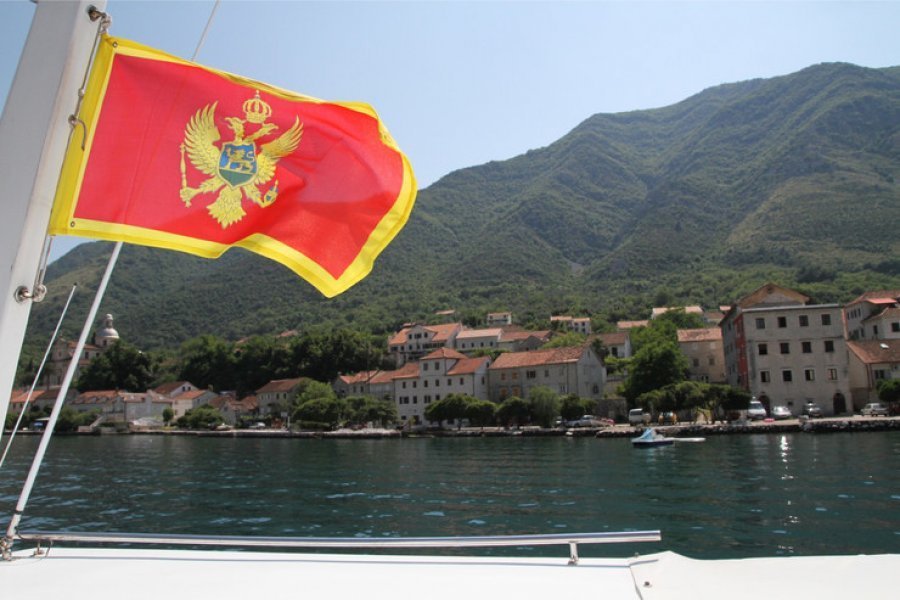Dr. Gurakuç Kuçi
“OCTOPUS” Institute
gurakuq.kuqi@octopusinstitute.org
The recent population census in Montenegro could bring serious harm to this country. The non-publication of full results on issues such as ethnicity, language, and religion raises suspicions that the activities of Serbia and Russia have managed to disrupt the ethnic balance by artificially increasing the Serbian ethnicity through encouraging Montenegrins to declare themselves as Serbs.
This issue is part of a strong cause of restoring Russian and Serbian influence in this country, which offers access to warm waters, namely the Adriatic Sea. The recent census, apart from the irregularities during its conduct, also faced a fierce Serbian campaign through the Serbian Church, which called for Montenegrins to declare as Serbs, along with other calls through individual campaigns and billboard campaigns.
The census results could bring serious changes to the state structure of Montenegro. The OCTOPUS Institute’s research finds five options if the hybrid war of Russia and Serbia succeeds against Montenegro:
- Serbs in Montenegro – like Albanians in North Macedonia.
- Federalization similar to that of Bosnia and Herzegovina.
- An association of Serb-majority municipalities similar to what is proposed in Kosovo.
- A referendum enabling the secession of some municipalities or their return to Serbia.
- Changes in geopolitical circumstances and the balance of power leading to potential annexation by Serbia.
Until these options are realized, Russia and Serbia have used many methods of hybrid warfare identified below:
– Death threats as a method of political intimidation, such as the attempted assassination of Đukanović to change Montenegro’s approach and stop its NATO membership.
– Political parties, by supporting various entities, mainly extreme right-wing ones, and exploiting the fragility of democracy to legalize their ethnic issues.
– Electoral processes, by creating as many entities as possible that then manage to fragment the votes of major parties not in favor of Russian and Serbian interests.
– Influence through different propagandas, such as those before the census mentioned in the study.
– Influence on the society’s declaration regarding ethnic issues, specifically declaring from Montenegrin to Serbian, ethnic engineering.
– Use of television, written media, and social networks to spread propaganda, agitation, and disinformation.
On April 1 of this year, Kosovo expects to hold its census. The OCTOPUS Institute, considering Montenegro’s experience and possible third-party interventions like Russia and Serbia, advises Kosovo to carefully analyze every aspect of the census process, including registration techniques, data security, and the inclusion of all communities. It is essential to take measures to avoid potential external interventions by increasing diplomatic activity in decision-making centers and strengthening the path towards NATO membership.
All the conclusions above have a significant political and strategic history. We encourage you to read the complete paper to understand the whole process better by clicking on the title: Geopolitical Risks and Reconfigurations: Serbia and the Challenge for Montenegro’s Stability.
Pro-Russian and Pro-Serbian Turn in Montenegro and the Challenges of Geopolitical Orientation
Montenegro can be considered to have begun its pro-Western journey in 1995, immediately after the Dayton Agreement. That year, Milo Đukanović and Svetozar Marović visited the Pentagon in the USA, offering access for international peacekeeping troops at the Port of Bar. During NATO bombings, Đukanović managed to convince NATO to limit the bombings on Montenegrin territory.
Montenegro declared its independence in 2006 after a referendum in which Albanians also played a significant part. At that time, Vučić had stated that they would work to bring Montenegro back within 10-20 years. Serbia’s engagement has been in full cooperation with Russia, as besides the interests of territorial expansion and Slavic-Orthodox interests, a significant strategic interest is access to warm waters, namely the Adriatic Sea. In 2013 and 2015, Russia requested Montenegro to give the Port of Bar for building a military base, but Montenegro refused, leading to strained relations until a coup attempt in 2017 aimed to assassinate Milo Đukanović during the elections. This assassination attempt was uncovered by the Kosovo Intelligence Agency, which informed Montenegrin security organs, resulting in the arrest of about 20 people, including former Serbian gendarmerie officers.
According to the case prosecutor, this was politically motivated to change the government in Montenegro and prevent its NATO membership.
Things in Montenegro started shifting towards pro-Serbian and pro-Russian orientation again after the 2020 elections, where Đukanović’s party lost, and a coalition of mostly pro-Russian and pro-Serbian parties won. The government emerging from these elections, led by Zdravko Krivokapić, lasted no more than 14 months before making way for Dritan Abazović’s government. The latter, with as much pomp as he became prime minister, led briefly and was similarly ousted from power. This was because he made an agreement with the Serbian Orthodox Church offering it extraterritoriality and many other benefits, leading the Assembly to pass a motion of no-confidence against him.
According to a Pobjeda newspaper investigation, during Abazović’s mandate, border police were changed, replaced with non-professionals and party loyalists, making the border with Bosnia and Herzegovina non-functional.
The 2023 elections did not produce anything different except strengthening pro-Russian and pro-Serbian parties, bringing to power in the three highest positions and other posts people with pro-Serbian and pro-Russian orientations, detailed in the study.
Including political changes and the recent census, where ethnic engineering was aimed, the issue of Serbia being landlocked and this access being important for Serbia and Russia, then after the census results, without adequate reaction against Serbia and Russia from Western allies, the options for Montenegro could be grim.
This could create a new artificial crisis of internal institutional erosion, new elections under slogans to stop the return of nationalists to power, secession through a referendum of some municipalities like Pljevlja, Nikšić, and Berane, and all these actions facilitated by blockages that Andrija Mandić could make as the Speaker of Parliament and a member of the Security and Defense Council that commands the Armed Forces where decisions are made unanimously.
The last option remains that of a classic invasion with changing geopolitical circumstances and the global balance of power.

